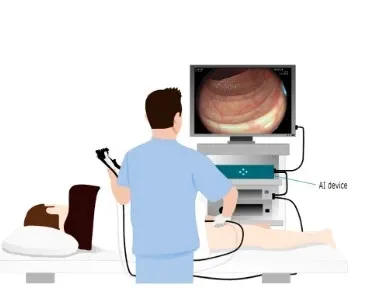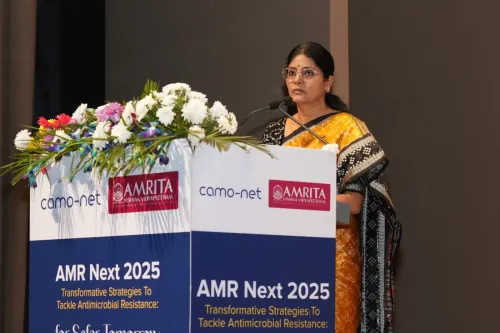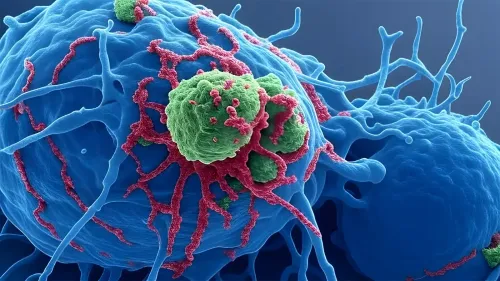Could AI-Assisted Colonoscopies Diminish Doctors' Skills?

Synopsis
Key Takeaways
- AI integration in colonoscopies may reduce detection skills.
- Colonoscopy is vital for preventing bowel cancer.
- Research shows a significant drop in adenoma detection rates post-AI.
- Further studies are needed to understand the full impact of AI.
- Health professionals must be trained to balance AI use with skill retention.
New Delhi, Aug 13 (NationPress) As the integration of Artificial Intelligence (AI) in healthcare continues to rise, a groundbreaking study featured in The Lancet Gastroenterology and Hepatology journal reveals that physicians who frequently conduct AI-assisted colonoscopies might risk losing their capability to identify precancerous growths (adenomas) in the colon without AI support.
The colonoscopy procedure, generally carried out by an endoscopist, plays a crucial role in detecting and eliminating adenomas, thereby preventing bowel cancer.
Several trials indicate that employing AI during colonoscopies enhances adenoma detection rates, generating significant excitement surrounding this technology.
However, research on the long-term effects of consistent AI usage on the skills of endoscopists is limited, raising concerns that it could either provide beneficial training or hinder skill retention.
“To our knowledge, this is the first study suggesting a detrimental effect of habitual AI use on healthcare practitioners' ability to perform essential medical tasks. Our findings are alarming, especially as AI adoption in healthcare accelerates,” stated Dr. Marcin Romańczyk from the Academy of Silesia in Poland.
The research was conducted across four colonoscopy centers in Poland from September 2021 to March 2022.
A total of 1,443 colonoscopies were performed without AI; 795 were conducted before the regular use of AI, while 648 followed its implementation. The procedures were executed by 19 seasoned endoscopists with over 2,000 colonoscopies each.
The adenoma detection rate during non-AI-assisted colonoscopies significantly plummeted from 28.4% (226/795) prior to AI integration to 22.4% (145/648) post-AI integration, marking a 20% relative and 6% absolute decline.
In contrast, AI-assisted colonoscopies achieved an adenoma detection rate of 25.3% (186/734).
The research team acknowledged certain limitations, noting that the observational nature of the study means that other factors may also have impacted the results.
Romańczyk emphasized the necessity for further investigation into how AI influences the skills of health professionals across various medical disciplines.










